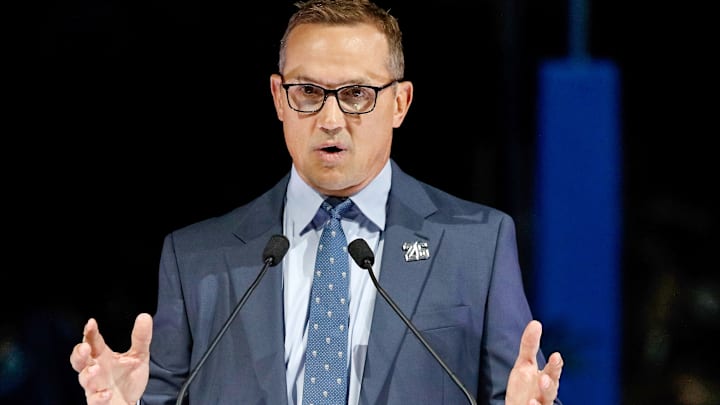The NHL made the right decision in expanding the regular season schedule for next year. Just as importantly, and contrary to the concerns of some critics, the league was equally wise to scale back the number of preseason games.
At first, the idea of adding more regular season contests seemed questionable. Many argued that the schedule was already saturated, leaving little room for adjustment. Yet when balanced against a reduction in preseason play, the change carries real merit. Fewer exhibition games eliminate redundancy, while the added regular season matchups create greater competitive value for fans and teams alike.
Still, not everyone is convinced. Among the skeptics is Detroit Red Wings general manager Steve Yzerman, who has voiced hesitation about the shift. His viewpoint reflects an ongoing debate within the league: whether maximizing meaningful games can truly outweigh the benefits of extended preseason evaluation.
“I think the four preseason games, that’s going to be interesting,” Yzerman said. “It’s a bit of a challenge. You’re always weighing, getting, how many games your veteran players need to play.
“The guys that are really knocking on the door, the guys that you can consider call-ups, and then those players that are here really trying to push to make the team, it’s going to be hard to get everybody in a reasonable number of games with four.
“That’s the downside to it, but we’ll manage it. But I think the 84-game season makes a lot of sense.”
Eight preseason games appear excessive for the purpose of evaluating how prospects handle live game scenarios, risking both redundancy in assessment and unnecessary wear on players. Four games, by contrast, strike an effective balance: enough to provide meaningful insights into a player’s readiness without dragging into diminishing returns.
Five occupies an awkward middle ground — neither concise nor comprehensive — while six begins to edge toward overscheduling, stretching the evaluation period just beyond what is practical. In this sense, four games emerge as the most efficient framework: sufficient for analysis, yet disciplined in scope.
What's the point of having scouts?
Another point often overlooked in this discussion is the role of scouting. The concern that NHL coaches will have less time to evaluate prospects holds little weight when one considers that the league employs an extensive network of seasoned scouts precisely for that purpose.
The head coach does not need to observe every developmental step firsthand; rather, he relies on trusted evaluations from his staff. During the regular season, for instance, Todd McLellan may not personally witness a prospect’s progress, but he can turn to professionals such as Kirk Maltby, Kyle MacKinnon, or, on the amateur side, Marty Hogan, Ross Yates, and Brendan Flemming, you get the point. This delegation is not a weakness but an essential feature of a well-structured organization.
From the perspective of fans, the benefits are equally clear. More regular season games mean more meaningful competition and, quite simply, more hockey to enjoy. Spectators gain greater value for their investment, and the league strengthens its product.
As for concerns about playoff formatting, those are secondary matters that can be addressed in due course. What matters most now is that the NHL has chosen a model that both respects the work of its scouts and enhances the experience for its fans.
More from Octopus Thrower
